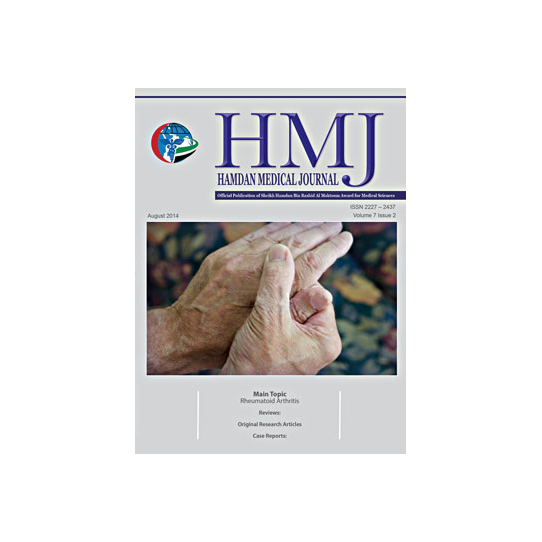

Sensitization of murine macrophages and human hepatoma cells to lipopolysaccharide-induced oxidative and nitrosative stress by aspirin
Volume : 7 Issue :2 (2014) HMJ
Haider Raza, Annie John and Jasmin Shafarin
Department of Biochemistry, College of Medicine and Health Sciences, United Arab Emirates University,
Al Ain, United Arab Emirates
Bacterial endotoxin lipopolysaccharide (LPS) induces the production of inflammatory cytokines and reactive oxygen species (ROS) under in vivo and in vitro conditions. Acetylsalicylic acid (ASA, aspirin) is one of the most commonly used anti-inflammatory drugs.
The aim was to study the mechanism of aspirin action in the presence of LPS in murine macrophages and human hepatoma cells. The team investigated the effects of LPS with a subtoxic concentration of ASA, alone and in conjunction, on oxidative and nitrosative stress using the mouse macrophage cell line J774.2 and human hepatoma HepG2 cells. Apoptosis was measured by flow cytometric analysis. LPS alone markedly induced nitric oxide (NO) production in macrophage cells and moderately in HepG2 cells. When ASA was added to LPS-treated macrophage cells, the increase in NO production was significantly higher than that induced by LPS or ASA alone. However, treatment of HepG2 cells with LPS or ASA alone or in combination exhibited moderate effects on NO production. Similarly, production of ROS after treatment with LPS and ASA was also higher in macrophages than in HepG2 cells. The combination of LPS and ASA also markedly increased the rate of lipid peroxidation in both cell lines. The activity of aconitase, an oxidative stress-sensitive mitochondrial matrix enzyme, was also markedly inhibited in J774.2 cells compared with HepG2 cells. Furthermore, treatment of cells with LPS alone or in combination with ASA also resulted in higher apoptotic cell death in macrophages. These results suggest that macrophages are more sensitive to LPS and that LPS and ASA treatments synergistically increase oxidative and nitrosative stress in these cells.